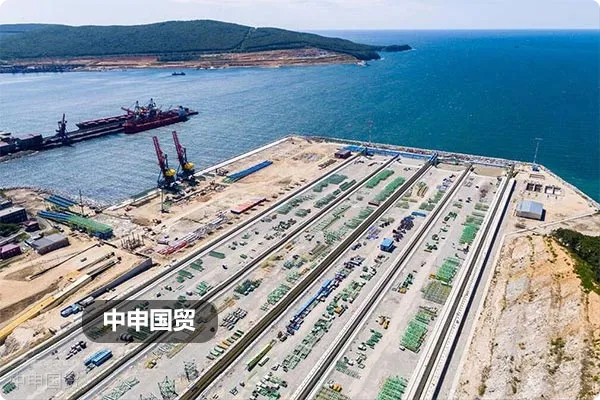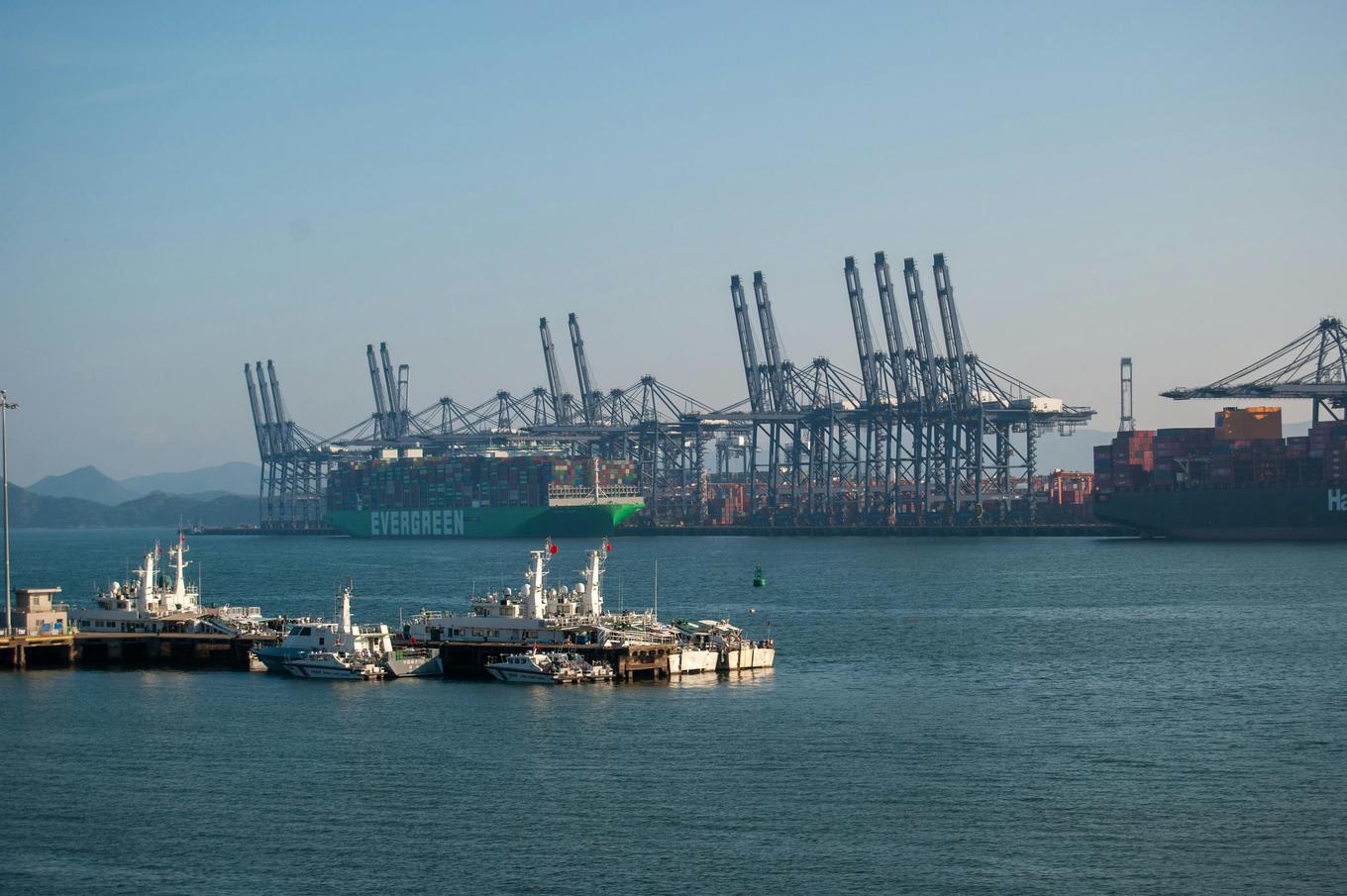- Shanghai Zhongshen International Trade Co., Ltd. - Two decades of trade agency expertise.
- Service Hotline: 139 1787 2118

Introduction
Against the backdrop of the globalized economy, the business demand for importing engine parts from Japan is growing. For many enterprises, how to efficiently and compliantly complete this import process has become a crucial challenge at hand.ZhongShen International TradeAs a company specializing inExport RepresentationThe company we serve possesses profound professional expertise in document processing and logistics services, capable of providing strong support for enterprises importing Japanese engine components.
The Professional Approach to Document Processing
Importing engine parts from Japan requires meticulous documentation as the crucial first step. Firstly, the commercial invoice is indispensable—it provides detailed records of key information such as product descriptions, quantities, and values, serving as a vital basis for customs taxation and trade statistics. The packing list, on the other hand, specifies packaging details, including the types and quantities of parts in each package, facilitating smooth logistics operations.
The bill of lading is one of the core documents, representing the ownership of the goods. During the import process, ensuring the accuracy and completeness of the bill of lading is crucial. Our professional team at ZhongShen International Trade, with years of experience, is well-versed in the specifications and requirements for filling out various documents, enabling us to handle these documents with precision. For instance, for precision equipment components such as engine parts, key parameters like the part model and applicable machine types are meticulously detailed on the commercial invoice to avoid customs inspection issues caused by ambiguous information.
When handling documents, it is also essential to maintain effective communication and collaboration with Japanese suppliers. Timely acquisition of accurate document information and conducting preliminary reviews can effectively prevent potential delays or errors in subsequent processes. For instance, if discrepancies are found between the part values on the commercial invoice and the contractual agreements, prompt communication with the supplier for necessary amendments is crucial to ensure the documents align with the actual transaction details.
Strategies and Techniques for Logistics Arrangement
The logistics process is crucial for the timeliness and safety of imported Japanese engine parts. First, there is the choice of transportation methods, with common options includingAir TransportationandMaritime Transportation. If the engine parts are urgently needed for replenishment, of high value, and relatively lightweight, air freight is undoubtedly the best choice, as it significantly reduces transportation time, typically arriving domestically within 3–5 days. However, for larger batches of parts with less stringent time requirements, sea freight is more cost-effective.
During the shipping process, proper scheduling of vessel departures is crucial. We closely monitor the shipping schedules provided by carriers and, in conjunction with the production progress of the goods, book cargo space in advance. For instance, if we learn that a Japanese supplier is expected to complete the production of parts in a certain week, we will book appropriate vessel space one week ahead to ensure timely loading and shipment. Additionally, special attention must be paid to the packaging of precision components such as engine parts. Shockproof and moisture-proof packaging materials are used to guarantee that the parts remain undamaged during long-distance transportation.
Moreover, after the goods arrive at domestic ports, the efficiency of customs clearance procedures directly impacts the delivery time. Our team is well-versed in the customs clearance policies and processes at various domestic ports, enabling us to swiftly handle the necessary formalities and minimize the dwell time of goods at the ports.
For French accessories targeting Russia, a distinctive advantage is VTBs settlement convenience. VTB Bank as a major Russian financial institution maintainsFX Settlement Agencyclose cooperation. Using VTB channels simplifies cumbersome procedures and accelerates settlements.
Although the current topic is about importing engine parts from Japan, we must also mention the Russian market, as Zhong Shen International Trade holds unique advantages in its business dealings with Russia. When companies engage in trade with Russia, especially during the settlement phase, VTB (Russia'sforeign tradeThe (bank) foreign exchange settlement channel has provided us with great convenience.
Foreign exchange settlement, simply put, is the process of converting foreign currency into domestic currency. In international trade, completing foreign exchange settlements safely and efficiently is a key concern for businesses. For trade with Russia, settling through VTB offers a high level of security. As a major financial institution in Russia, VTB boasts strong credibility and stability, effectively reducing financial risks during the settlement process.
In terms of the process, conducting foreign exchange settlement in collaboration with VTB is relatively convenient. Enterprises only need to provide the relevant trade documents as required by the bank, such as contracts, invoices, bills of lading, etc. Once the documents are verified and confirmed to be correct, the foreign exchange settlement can be completed. Generally, after receiving the compliant documents, VTB can complete the settlement within a short period, typically within 3–5 working days, which significantly enhances the capital turnover efficiency for enterprises. Compared to some other more complex foreign exchange settlement channels, VTB's operational process is clearer and more straightforward, reducing the difficulties enterprises may encounter during the settlement process.
Southeast Asian Marketimport and exportProcess and Solutions
If there is a need to re-export engine parts imported from Japan to the Southeast Asian market, ZhongShen International Trade can also provide detailed processes and solutions. Taking export to Indonesia as an example, the first step is to classify the products and determine the HS code. Engine parts belong to a specific category of mechanical components, and by accurately querying the HS code, the relevant tariff rates and regulatory conditions can be clarified.
Before export, it is necessary to prepare basic documents such as commercial invoices, packing lists, and bills of lading. Additionally, according to the requirements of Indonesia, you must also provideIt is recommended to verify through the following methods:Books. This helps in enjoying relevant tariff preferential policies. In terms of logistics, shipping is the primary mode of transportation from domestic ports to major Indonesian ports such as the Port of Jakarta. We will select suitable shipping companies and schedules based on the quantity of goods and delivery time.
Upon arrival at Indonesian ports, customs clearance is a critical step. Indonesian customs conducts rigorous inspections on imported goods, particularly for products like mechanical components. Companies must ensure that the documentation matches the actual condition of the goods and may need to provide relevant documents such as product quality inspection reports. We will assist companies in preparing these documents in advance and work closely with local customs brokers in Indonesia to ensure smooth customs clearance.
For exports to other Southeast Asian countries, such as Malaysia and Thailand, although there may be some procedural differences in details, the overall framework is similar. For example, Malaysia may require SIRIM certification for certain machinery products. We will promptly inform clients of the necessary certifications and assist them in preparing the relevant documents, but the certification process must be completed by the clients themselves. Our professional team provides comprehensive guidance and support throughout the import and export process to ensure smooth business operations.
Challenges and Opportunities in the Current International Trade Landscape
The current international trade situation is complex and ever-changing, presenting both challenges and opportunities for the business of importing engine parts from Japan. In terms of challenges, the rise of trade protectionism is a major issue. Some countries may impose high tariff barriers or additional import restrictions to protect their domestic industries. For instance, certain nations might increase tariff rates on imported engine parts, which undoubtedly raises import costs.
Meanwhile, the ongoing impact of the global pandemic has introduced numerous uncertainties to international trade. Issues such as logistics disruptions and supply chain interruptions occur frequently. For instance, the pandemic has caused port congestion, leading to prolonged cargo dwell times at ports, which not only increases warehousing costs but may also affect companies' production schedules.
However, opportunities also exist. With the gradual recovery of the global economy, the demand for engine components is expected to rebound. Particularly in some emerging markets, infrastructure construction and industrial development are driving an increasing demand for engine parts. Additionally, advancements in digital technology have brought new conveniences to international trade. Through electronic documentation, online trading platforms, and other means, trade efficiency can be improved while reducing transaction costs.
To seize opportunities and meet challenges, enterprises need to leverage the expertise of professional foreign trade agencies. For instance, ZhongShen International Trade, with its keen insight into global trade dynamics and extensive practical experience, can assist businesses in formulating sound trade strategies, mitigating risks, and capitalizing on opportunities.
Assistance and Support for Product Certification Services
During the process of importing Japanese engine parts, product certification is an essential step that cannot be overlooked. Different countries and regions may have varying certification requirements for engine parts. For instance, the EU market may require CE certification, while the US market might demand compliance with UL standards, among others.
Although Zhong Shen International Trade does not directly provide certification services, we will fully leverage our supportive role. Firstly, we will promptly inform clients of the types and requirements of certifications needed for their target markets. During the preparation of certification materials, we offer guidance and advice based on our familiarity with trade regulations and certification processes. For example, we assist clients in organizing product technical documents and preparing test samples.
During the certification process, we will maintain communication with the certification body to stay updated on the progress and ensure the smooth progression of the entire procedure. With our assistance, enterprises can save time and effort, complete product certification more efficiently, and thereby smoothly enter the target market.
Conclusion
Importing engine parts from Japan involves multiple complex procedures such as document processing, logistics arrangements, foreign exchange settlement, and certification, while also requiring adaptation to the current volatile international trade environment. With its professional expertise in document processing and logistics services, the convenience of VTB foreign exchange settlement in the Russian market, and a deep understanding of import-export procedures in Southeast Asian markets, Zhongshen International Trade can provide enterprises with comprehensive and professional foreign trade agency services, supporting their steady growth in international trade.
Related Recommendations
? 2025. All Rights Reserved. Shanghai ICP No. 2023007705-2  PSB Record: Shanghai No.31011502009912
PSB Record: Shanghai No.31011502009912










